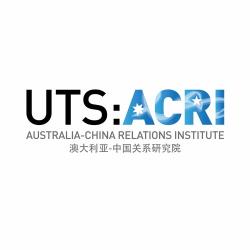In recent years, China’s aid in the Pacific has come under increased scrutiny. Some suggest that China’s infrastructure projects and loans lead to unsustainable levels of debt for countries in the region, and that aid programs could lead to pro-China policy positions. The Chinese government has recently announced the formation of the International Development Cooperation Agency to coordinate its foreign aid programs, indicating that China may be prioritising the improvement of its international aid policy in light of the Belt and Road Initiative. What is China’s approach to aid? How does it differ from Australia’s? How do citizens of Pacific Island countries view China’s presence there? Should Australia be concerned?
Merriden Varrall, Director of the East Asia Program at the Lowy Institute for International Policy, joins James Laurenceson, Deputy Director of the Australia-China Relations Institute (ACRI) at the University of Technology Sydney, to discuss China’s aid program in the Pacific and its evolving approach towards foreign aid.
Guest: Merriden Varrall, Director, East Asia Program, Lowy Institute for International Policy
Host: James Laurenceson, Deputy Director, Australia-China Relations Institute (ACRI), University of Technology Sydney
In recent years, China’s aid in the Pacific has come under increased scrutiny. Some suggest that China’s infrastructure projects and loans lead to unsustainable levels of debt for countries in the region, and that aid programs could lead to pro-China policy positions. The Chinese government has recently announced the formation of the International Development Cooperation Agency to coordinate its foreign aid programs, indicating that China may be prioritising the improvement of its international aid policy in light of the Belt and Road Initiative.
What is China’s approach to aid? How does it differ from Australia’s? How do citizens of Pacific Island countries view China’s presence there, and the effectiveness of Chinese projects? Should Australia be concerned?
Australia’s approach to aid is informed by the Organisation for Economic Cooperation and Development (OECD) Development Assistance Committee (DAC) experience, and is built on the belief that freedom, improved governance and democracy makes aid sustainable. China’s approach to aid, on the other hand, prioritises material interests and the satisfaction of basic needs; this is why infrastructure is a large component of international aid projects. This approach is informed by its own experience of economic development.
China’s nascent International Development Cooperation Agency is a significant development. Aid policy is currently designed by the Ministry of Commerce, and has tended to emphasise commercial rather than diplomatic projects, and has occasionally undermined the authority of the Ministry of Foreign Affairs. Within China there is a conceptual shift towards the notion of ‘aid for diplomacy’. This new agency will assist in streamlining foreign aid policy. Furthermore, monitoring and evaluation will be an important component of this new agency, thereby potentially increasing the effectiveness and accountability of foreign aid delivery.
China’s level of success in using foreign aid as a tool of soft power is arguable. It is difficult to determine precisely which factors lead to changing political positions on particular issues.
In the Pacific, different sectors of society hold different views on China’s aid program. Elites tend to have a positive opinion on the types of projects, usually infrastructure, that Chinese aid has gone towards. On the ground, however, ignorance of local politics, languages and traditions leads to apprehensive or sometimes hostile responses by local populations towards those dispatched from China.
China’s increased presence in the Pacific does not mean that competition between Australia and China is inevitable. There is scope for cooperation between the two countries to contribute their respective expertise to ensure the best outcomes for aid recipients.
Theme music by Sam J Mitchell.


